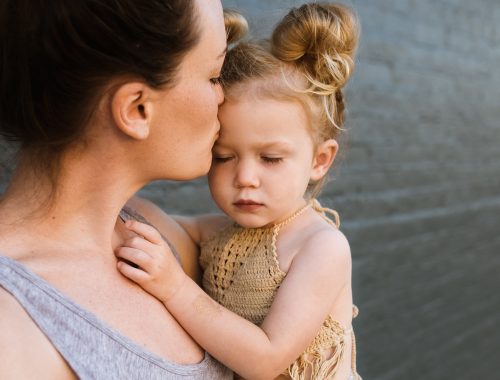
5 Ways to Foster Creativity in Your Kids
Many people assume that creativity is an inborn talent that their kids either do or do not have – just as children are not equally intelligent, they are not equally creative. However, creativity is more a nurtured skill than inborn talent and it is one parent should help their kids develop.
Creativity is one of the keys to success in nearly everything we do. It is not limited to artistic and musical expression – it is also essential for science, math and even social and emotional intelligence. Creative people are flexible and better problem solvers, which makes them adapt to technological advances, deal with change, and take advantage of new opportunities.
The modern experience of childhood has changed in such a way that impairs creative development. Toy and entertainment companies feed kids an endless stream of prefab characters, images, prop and plot lines that don’t allow children to stretch the limits of their imaginations. Children no longer need to pretend a stick is a sword in a game or story they have imagined: they can play Star Wars with a specific lightsaber in costumes designed for the specific role they are playing.
Here are some ideas for fostering creativity in your kids:
Provide the Resources They Need for Creative Expression
The essential resource here is time. Kids need a lot of time for unstructured, child-directed, imaginative play – unencumbered by adult direction and that doesn’t depend on a lot of commercial stuff.
Kids need space and ideally, they should have a specific place where they can make a mess, like a room in your attic for dress-up, an area in the garage for painting, or a corner in your family room for Legos.
Make Your Home a Petri Dish for Creativity

In addition to creative spaces, parents need to foster a creative atmosphere.
Solicit a high volume of different ideas while resisting the urge to evaluate them as your kids come up with ideas. At dinnertime, for example, you could brainstorm activities for the upcoming weekend, encouraging the kids to come up with things they’ve never done before. However, do not point out which ideas are not possible and the best. The focus of creative activities should be on the process: generating (vs. evaluating) new ideas.
Celebrate innovation and creativity – cover your walls with art and other evidence of creative expression. Tell your kids all about your favorite artists, musicians and scientists. Share your passion for architecture or photography or that new band you want to listen to all the time. Embrace new technologies so your kids grow to find change exciting, not overwhelming and intimating.
Encourage Children to Read for Pleasure and Participate in the Arts
Limit TV and other screen time to make room for creative activities like rehearsing a play, learning to draw or reading every book written by a favorite author.
Kids must be able to express themselves, especially at a young age. COVID-19 has had an adverse effect on kids as lockdowns proliferated in late winter. There has been extensive discussion about their impact on children – among policymakers, educators, scientists and parents. Increases in screen time have been of particular concern, driven by research connecting excessive child screen time to poor sleep, myopia, metabolic syndromes, behavioral challenges, decreased physical activity and other outcomes. Some parents report using social media as a distraction when they need to attend to other matters or take a break since they did not have access to childcare. As such, it is vital to monitor screen time.
Don’t Reward Children for Exhibiting Creativity
Incentives interfere with the creative process, reducing the quality of their responses and the flexibility of their thought.
Allow children to develop mastery of creative activities that they are intrinsically motivated to do, rather than motivating them with rewards and incentives. Instead of rewarding a child for practicing the piano, for example, allow her to do something she enjoys more – maybe sit at her desk and draw or take a science class.
Play the Role of Matchmaker

Many children want to share ideas and collaborate on projects, but they are not sure how. You can play the role of matchmaker, helping children find others to work with. This will help them work on their creative process with another person of their age and socialize and make friends.
Kids need to be able to express themselves without feeling pressured. Take the time to be with your children and as a parent, be creative yourself. Kids learn from watching their parents too. Feel free to join them on their journey to creativity as it will benefit your children and give you the opportunity to bond and have fun.
Let us know in the comment section below how you help your kids be creative.
You May Also Like

7 Quirky Childcare Hacks You Won’t Find in Parenting Books
2023-10-12
What Do You Think of a Red Fruit Cake for Your Children’s Baptism?
2022-06-09

